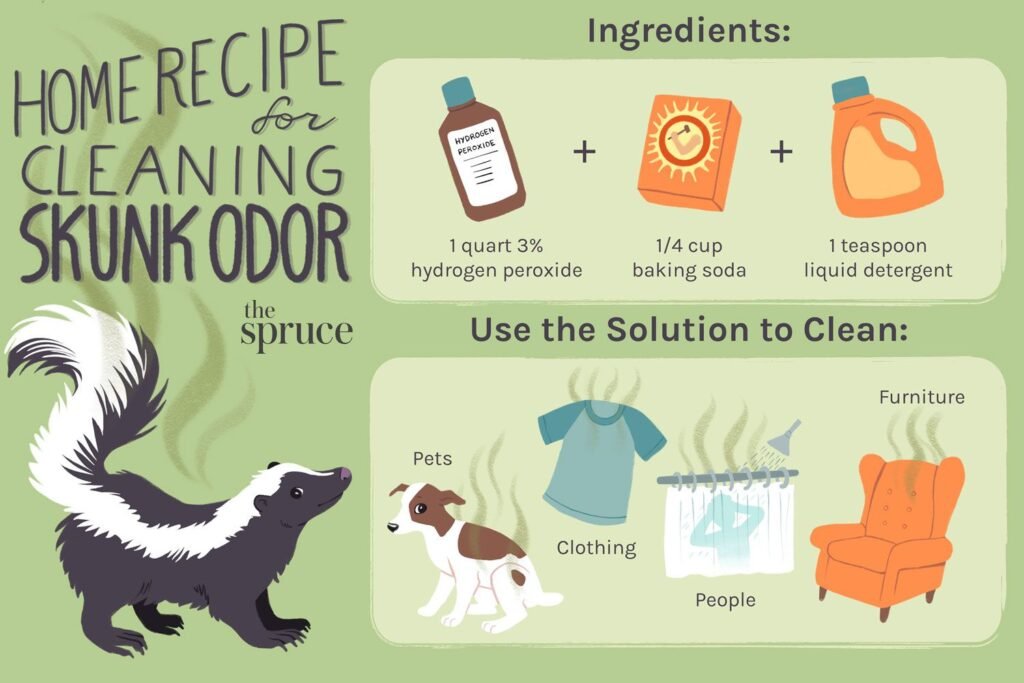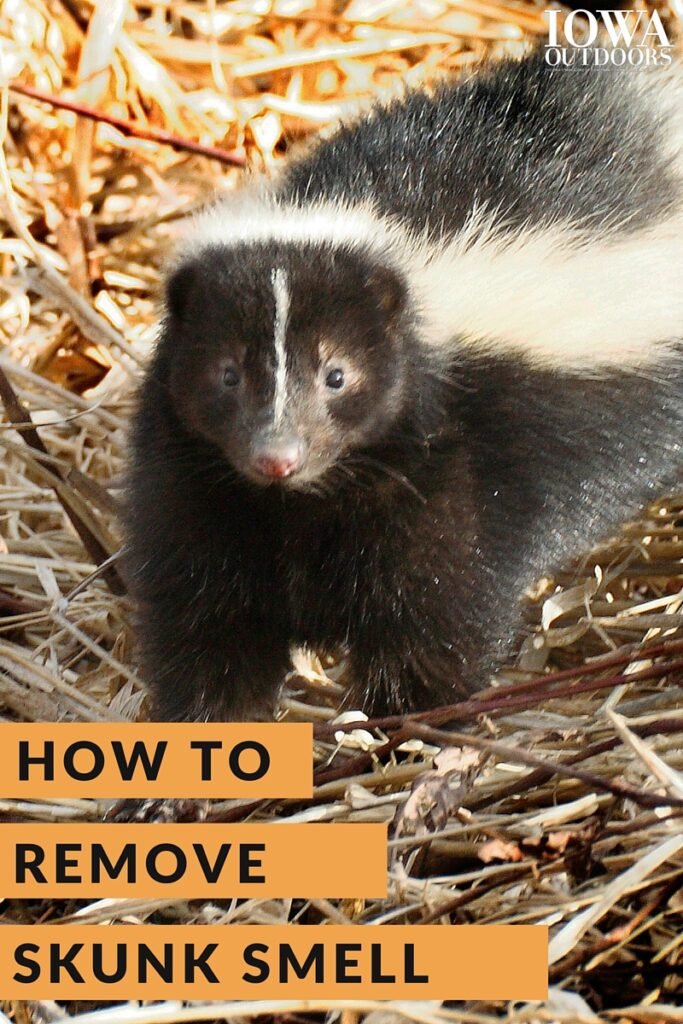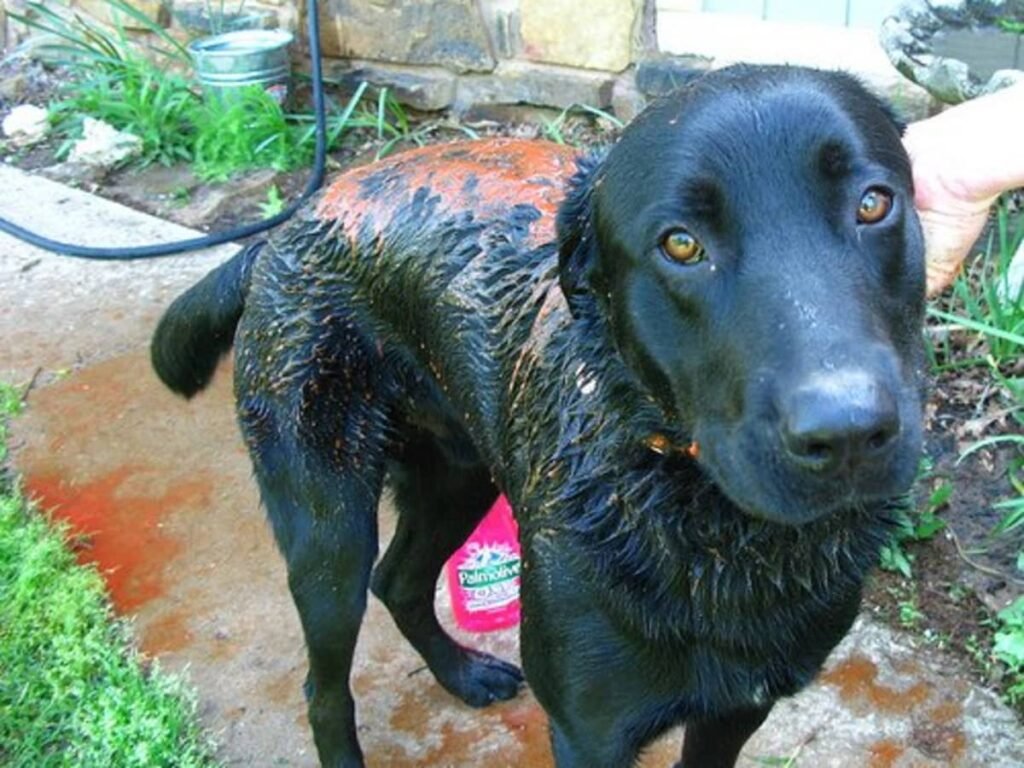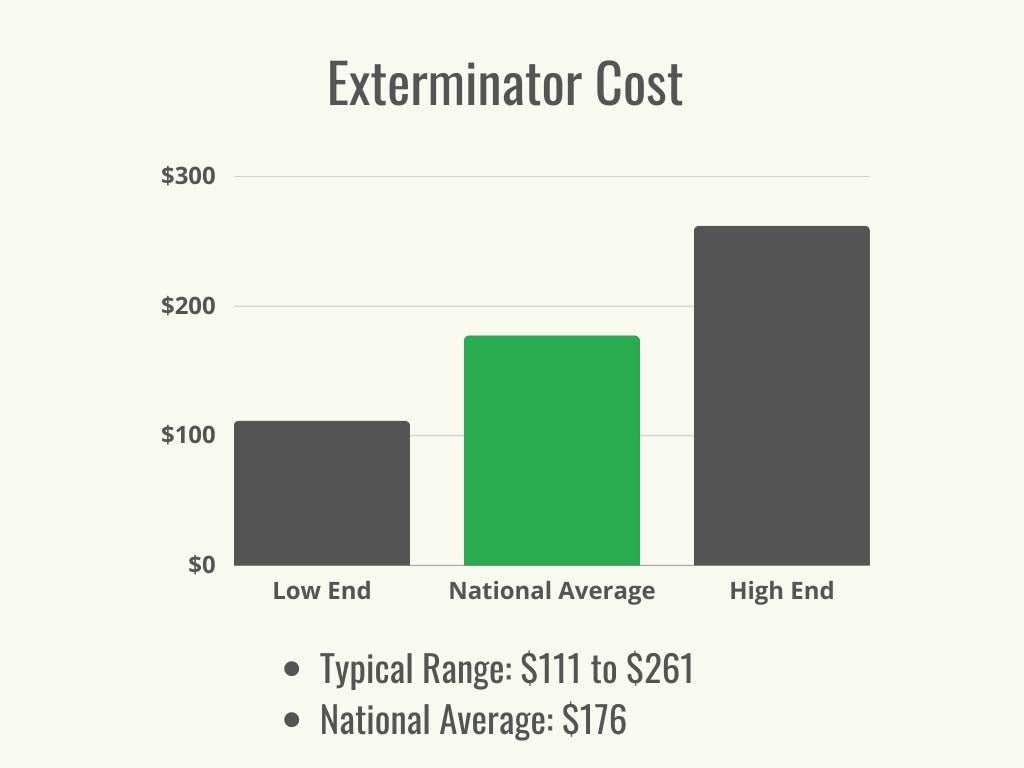In this article, we will explore the topic of skunk odor removal and whether it is possible to remove skunk scent glands. We will discuss the challenges associated with removing skunk odor from various surfaces, fabrics, and pets. By the end of this article, you will have a better understanding of the methods and products that can help eliminate skunk odor effectively. So, let’s get started and find out how to tackle this pungent problem!
The Importance of Skunk Scent Glands
Skunks are notorious for their strong, pungent odor that they release as a defense mechanism when they feel threatened. This odor, known as skunk spray, is produced and released by the skunk’s scent glands. Understanding the importance of skunk scent glands is crucial in comprehending the challenges of skunk odor removal.
What are skunk scent glands?
Skunk scent glands are specialized glands located on either side of a skunk’s anus. These glands produce a noxious secretion, known as skunk spray, that is primarily used to deter predators. Skunks have two distinct scent glands, with each gland capable of producing a moderate amount of spray when activated.
Why do skunks have scent glands?
Skunks possess scent glands as a means of self-defense. When a skunk feels threatened or startled, it will arch its back, raise its tail, and aim its glands in the direction of the potential threat. Skunk spray contains sulfur compounds, which have a strong and unpleasant odor that can deter predators, effectively giving skunks a means to defend themselves.
The function of skunk scent glands
The primary function of skunk scent glands is to protect skunks from harm. Skunks typically only deploy their spray as a last resort when other warning signs, such as hissing, stomping, or arching their back, fail to scare off a predator. When activated, the scent glands release a strong spray that can reach up to 10 feet away, ensuring that the skunk has a high chance of deterring its attacker.
Understanding Skunk Odor
Skunk odor is notorious for its persistence and ability to linger long after the initial encounter. Understanding what causes skunk odor and its effects on humans is important in devising effective strategies for skunk odor removal.
What causes skunk odor?
Skunk odor is primarily caused by the sulfur compounds present in skunk spray. These compounds, which include mercaptans, give skunk spray its distinct smell. When a skunk sprays, the sulfur compounds bind to the target’s skin, hair, and clothing, releasing an odor that can be challenging to eliminate.
How does skunk odor affect humans?
Skunk odor can have a significant impact on humans. When a person comes into contact with skunk spray, the odor can permeate the skin, hair, and clothing, causing a strong and unpleasant smell that is difficult to eliminate. Additionally, skunk spray can cause irritation and discomfort, particularly if it comes into contact with the eyes or mucous membranes.
The lingering effects of skunk odor
One of the most challenging aspects of skunk odor removal is its ability to persist for an extended period. Skunk spray can remain potent for days or even weeks, particularly in enclosed spaces where ventilation is limited. This lingering odor can be a constant reminder of a skunk encounter and can be a source of embarrassment and inconvenience.


Methods for Skunk Odor Removal
When faced with skunk odor, many individuals are eager to find effective methods for its removal. There are numerous traditional methods, chemical-based products, and natural remedies available for skunk odor removal.
Traditional methods of skunk odor removal
Traditional methods of skunk odor removal often involve a combination of cleansing and deodorizing agents. These can include using a mixture of hydrogen peroxide, baking soda, and dish soap to create a homemade skunk odor removal solution. This mixture is applied to the affected areas, such as the skin, hair, or clothing, and left to sit before rinsing off.
Chemical-based skunk odor removal products
Chemical-based skunk odor removal products are also commonly available. These products often contain enzymes that break down the odor-causing compounds in skunk spray. They are typically applied directly to the affected areas and left to dry before rinsing or washing.
Natural remedies for skunk odor removal
For those who prefer natural remedies, there are several options available for skunk odor removal. These can include using vinegar, tomato juice, or lemon juice to neutralize the odor. These substances are applied to the affected areas and allowed to sit before being rinsed off.
Professional Skunk Odor Removal Services
In some cases, skunk odor can be particularly challenging to remove. When traditional methods and products fail to eliminate the smell completely, it may be necessary to seek professional skunk odor removal services.
Benefits of hiring professional skunk odor removal services
Professional skunk odor removal services have specialized tools and expertise in dealing with skunk odor. They can often offer more effective and efficient solutions for eliminating the odor, saving individuals time and frustration. Additionally, professional services can provide guidance on preventative measures to avoid future encounters with skunks.
Considerations before hiring professional services
Before hiring professional skunk odor removal services, it is essential to consider factors such as cost, reputation, and experience. Researching and selecting a reputable company that specializes in skunk odor removal will ensure that the job is done thoroughly and effectively.


Preventing Skunk Odor
While skunk odor removal is essential, prevention is always the best strategy. Taking measures to prevent skunks from spraying in the first place can help to avoid the challenges and inconvenience of skunk odor removal.
How to prevent skunks from spraying
To prevent skunks from spraying, it is important to avoid startling or threatening them. Skunks have poor eyesight, so making noise, talking, or stomping your feet when approaching a skunk can give them ample warning to retreat without resorting to spraying. It is also crucial to keep pets restrained and avoid letting them chase or provoke skunks.
Effective deterrents for skunks
There are several effective deterrents that can help to keep skunks away from homes and properties. These can include installing motion-activated lights or sprinkler systems, as skunks are nocturnal and dislike sudden bright lights or bursts of water. Additionally, sealing off potential entry points, such as gaps under decks or sheds, can prevent skunks from making a home on your property.
Making your property less attractive to skunks
Skunks are attracted to food sources, so removing any potential food and water sources from your property can make it less appealing to skunks. This includes securing garbage cans, removing fallen fruits, and ensuring there are no accessible pet food or birdseed.
Safety Considerations
When dealing with skunk odor removal, it is essential to prioritize safety. This involves taking the necessary protective measures and being aware of the potential health risks associated with skunk odor and the removal process.
Protective measures when dealing with skunk odor
When attempting skunk odor removal, it is vital to wear protective clothing, gloves, and eyewear. This will help to minimize direct contact with the odor-causing compounds and prevent any potential skin or eye irritation. Additionally, working in a well-ventilated area or using fans to increase airflow can help to reduce the potency of the odor.
Potential health risks of skunk odor removal
Skunk odor removal should be approached with caution due to the potential health risks involved. Skunk spray contains sulfur compounds and other chemicals that can irritate the skin, eyes, and respiratory system. In some cases, individuals may be more sensitive to these compounds and experience more severe reactions. If any symptoms of irritation or discomfort persist, it is recommended to seek medical advice.


Natural Skunk Repellents
In addition to prevention methods, natural skunk repellents can be used to discourage skunks from entering your property.
Plants that repel skunks
Certain plants have strong scents that repel skunks, making them a natural deterrent. These can include lavender, marigold, and mint. Planting these in your garden or around your property can help to keep skunks at bay.
Home remedies for skunk repellents
There are also several home remedies that can be used as skunk repellents. These can include soaking cotton balls in ammonia and placing them in areas frequented by skunks or using a mixture of water and cayenne pepper to create a spray that can be applied to plants or outdoor surfaces.
Myths and Facts About Skunk Odor Removal
Skunk odor removal is a topic surrounded by myths and misinformation. Debunking popular myths and understanding the facts is crucial in effectively dealing with skunk odor.
Common misconceptions about skunk odor removal
One common misconception is that tomato juice is an effective remedy for skunk odor removal. While tomato juice may temporarily mask the odor, it does not eliminate it entirely. Another misconception is that using bleach or ammonia can help to remove skunk odor. However, these substances can react with the sulfur compounds in skunk spray and create toxic fumes.
Debunking popular myths about skunk odor
It is important to understand the facts about skunk odor removal to effectively deal with it. Understanding that skunk spray contains sulfur compounds and using proper cleaning agents or enzymatic cleaners specifically designed to break down these compounds is crucial. Additionally, seeking professional skunk odor removal services when necessary can save time and effort in effectively eliminating the odor.


Case Studies and Success Stories
Real-life experiences of skunk odor removal and testimonials from satisfied customers can provide valuable insights into the challenges and successes of skunk odor removal.
Real-life experiences of skunk odor removal
Many individuals have shared their experiences of skunk odor removal, recounting the challenges they faced and the methods that ultimately helped them eliminate the odor. These firsthand accounts can provide useful tips and lessons learned for others dealing with skunk odor.
Testimonials from satisfied customers
Numerous customers who have sought professional skunk odor removal services have provided testimonials expressing their satisfaction with the results. These testimonials can illustrate the effectiveness of professional services and the relief and peace of mind that comes from a skunk odor-free environment.
Conclusion
Removing skunk odor can be a challenging and frustrating task. Understanding the importance of skunk scent glands, the causes and effects of skunk odor, and the various methods of skunk odor removal is crucial. By taking preventative measures, prioritizing safety, and employing effective strategies, it is possible to overcome the challenges of skunk odor removal and create a skunk odor-free environment.
Key takeaways
- Skunk scent glands are an important part of a skunk’s defense mechanism.
- Skunk spray contains sulfur compounds that cause the strong and persistent skunk odor.
- Skunk odor can be challenging to remove using traditional methods, but professional skunk odor removal services can provide effective solutions.
- Preventing skunks from spraying in the first place is the best strategy and can be achieved through deterrents and making properties less attractive to skunks.
- Safety considerations should be taken when dealing with skunk odor removal, as skunk spray can cause irritation and potential health risks.
- Natural skunk repellents, such as certain plants and home remedies, can help to keep skunks away from properties.
- Debunking myths and understanding the facts about skunk odor removal is essential for effective odor elimination.
- Real-life experiences and testimonials provide valuable insights and guidance for skunk odor removal.
Final thoughts
Skunk odor is undoubtedly a challenge to deal with, but with knowledge, persistence, and the right methods, it is possible to successfully remove skunk odor and create a fresh and odor-free environment. By understanding the importance of skunk scent glands, taking preventative measures, and seeking professional assistance when necessary, you can overcome the challenges of skunk odor removal and enjoy a skunk-free living space.


Your Expert in Animal Control and Extermination. Trust our experience for humane, effective pest management, protecting your property and ensuring peace of mind with Michael S.





